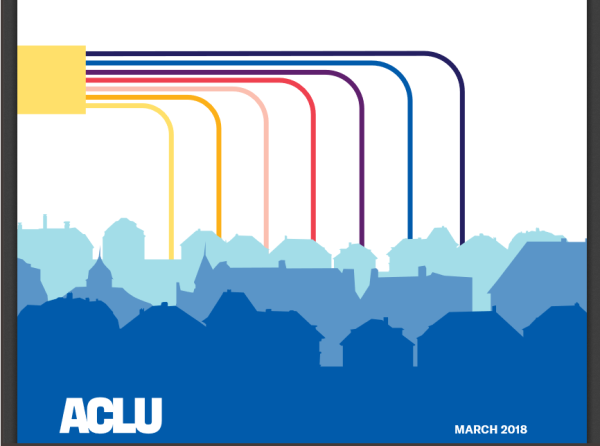ACLU Makes Case Against CASE Act's Copyright Small Claims Court

The smarter way to stay on top of broadcasting and cable industry. Sign up below
You are now subscribed
Your newsletter sign-up was successful
The American Civil Liberties Union said the CASE Act, which would create a copyright "small claims" court, could be a disaster for free speech.
The Copyright Alternative in Small-Claims Enforcement Act of 2019, which was introduced in the House last May by Rep. Hakeem Jeffries (D-N.Y.), would establish the Copyright Claims Board in the U.S. Copyright Office.
The idea was to give independent creators an easier and cheaper (than federal district court litigation) way to defend their intellectual property.
ACLU said it is all for that, but that there are unintended consequences that make the legislation potentially "disastrous."
ACLU also said the bill is fixable, but definitely must be fixed. “We welcome and support the goal of removing some of the barriers that prevent rights holders from protecting their copyrighted works," said ACLU senior legislative counsel Kate Ruane this week (“We welcome and support the goal of removing some of the barriers that prevent rights holders from protecting their copyrighted works, but Congress first needs to amend the bill to ensure there are proper safeguards to protect the freedom of speech and due process.), "but Congress first needs to amend the bill to ensure there are proper safeguards to protect the freedom of speech and due process."
ACLU is not happy with adding another layer of government on the process.
“The last thing Congress should be doing right now is giving another government body broad powers to operate without proper judicial oversight," Ruane wrote. "The system will be abused, and [the Copyright Claims Board] will make mistakes. Individuals fairly using copyrighted work, or those using it unknowingly — like kids posting videos of themselves on YouTube dancing to the latest Cardi B song — could be forced to pay up to $30,000 for these mistakes.”
The smarter way to stay on top of broadcasting and cable industry. Sign up below
ACLU is also worried about having a single government office with limited oversight deciding what is fair use and protected speech given that affected parties could include "every Internet user who has ever shared an article or a photo without knowing whether they had proper permission or posted a video of themselves singing along to the latest pop song," she wrote. "With no court to correct the board’s mistakes, the First Amendment will suffer."
Among the groups supporting the bill are the News Media Alliance, SAG-AFTRA, Authors Guild, RIAA, and the Copyright Alliance. Opponents, in addition to ACLU, include fair use standard-bearer Public Knowledge and the Consumer Technology Association, whose members make the technology that allows for the distribution of intellectual property, fair use and foul.
Bill cosponsors include Reps. Jerrold Nadler (D-N.Y.), chairman of the House Judiciary Committee; Martha Roby (R-Ala.), ranking member of the Judiciary Subcommittee on Courts, Intellectual Property and the Internet; Hank Johnson (D-Ga.), chairman of the House Judiciary Subcommittee on Courts, Intellectual Property and the Internet; Ben Cline (R-Va.); Brian Fitzpatrick (R-Pa.); Ted Lieu (D-Calif.); and Judy Chu (D-Calif.).
Contributing editor John Eggerton has been an editor and/or writer on media regulation, legislation and policy for over four decades, including covering the FCC, FTC, Congress, the major media trade associations, and the federal courts. In addition to Multichannel News and Broadcasting + Cable, his work has appeared in Radio World, TV Technology, TV Fax, This Week in Consumer Electronics, Variety and the Encyclopedia Britannica.

